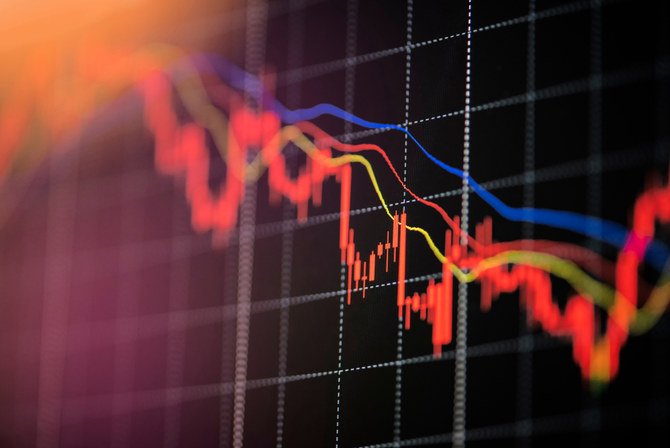Saudi Arabia’s main index dropped below 11,000 points for the first time in nearly nine months thanks to falling oil prices and global recession fears.
The Tadawul All Share Index dipped 2.26 percent at the end of Monday’s trade, reaching 10,909 for the first time since Dec. 12, while the parallel market Nomu shed 0.84 percent to 19,708.
“The markets are likely to continue to be volatile and in jittery mode until inflation is under control.” Fawaz Al-Fawaz, a Saudi-based independent economist and columnist told Arab News.
Oil prices sank to sub-$85 for the first time since January, hot on the heels of aggressive interest rate rises across the world, including by the US Federal Reserve and the Saudi Central Bank.
The market fall was led by a 2.85 percent decline in oil behemoth Saudi Aramco and a 3.92 percent drop in the Kingdom’s most valued bank Al Rajhi.
Riyad Bank slid 6.74 percent to lead the fallers, closely followed by Saudi petrochemicals maker Sipchem which was down 6.51 percent.
The Saudi National Bank, the Kingdom’s largest lender, decreased by 1.45 percent, while Saudi British Bank declined by 1.73 percent.
National Agricultural Development Co. shed 1.76 percent, following signing a non-binding memorandum of understanding with the Leha Agricultural Co. to produce potato seeds in Saudi Arabia.
Retal Urban Development Co. gained 3.39 percent, after selling its share in a land located in Al Khobar city for SR67 million ($18 million) to Maali Holding Co.
Anaam International Holding Group gained 5.6 percent to continue leading the gainers since early trade, after reporting that it turned into profits of SR1.6 million during the first half of 2022.
Saudi economist Ali Alhazmi told Arab News that the market direction is unpredictable, but he anticipated the decline to continue this week.
“The decline is from the uncertainty about the global economics, or also the decline of growth and the existence of recession in major economies, especially the US and the EU.”
“We cannot avoid the continued closure in China, which affects supply chains. We also have the ongoing war between Russia and Ukraine.”

